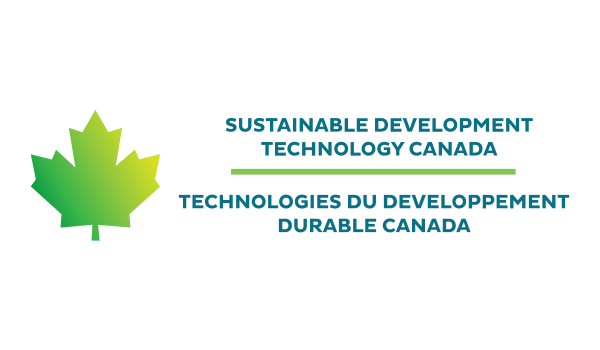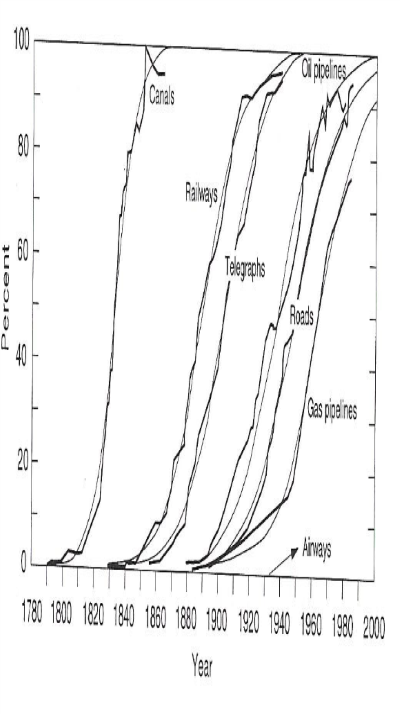Federal suspension of SDTC funding worries investors and industry, but not whistleblower
 Some cleantech investors and an industry association urge a quick fix of problems at Sustainable Development Technology Canada (SDTC), before a federal freeze of SDTC funding hurts startup companies.
Some cleantech investors and an industry association urge a quick fix of problems at Sustainable Development Technology Canada (SDTC), before a federal freeze of SDTC funding hurts startup companies.
Companies that were close to signing a funding agreement with SDTC may run out of cash if they don’t get the money they were expecting, said Bryan Watson, senior vice-president of business development at tech-financing firm Venbridge.
“Nobody has a war chest these days, with this economy, to be able to stretch the [cash] runway,” he told Research Money.
Watson said he knows a couple of companies that were in the eleventh hour of signing an agreement to receive SDTC funding and are now panicked at the funding freeze.
“The big implication in the cleantech ecosystem is that companies that were expecting this money, it could possibly kill some of them,” he said.
Innovation, Science and Economic Development Canada (ISED) last week temporarily suspended funding of all new SDTC projects, after a third-party investigation found several instances where SDTC wasn’t in full compliance with its contribution agreement with ISED.
A report on the investigation, by accounting firm Raymond Chabot Grant Thornton, documented conflict of interest problems, SDTC funding for companies that was inconsistent with the contribution agreement, and human management issues.
Watson agreed that proper governance is important when spending government money. If there are issues that need addressing at SDTC, “that has to be corrected,” he said.
However, cleantech companies that were close to getting SDTC funding, and want to start a project next year, typically need to order materials six to eight months in advance, he noted. So they’re probably already spending some of the anticipated funding.
Watson said he doesn’t know enough about recent operations at SDTC to comment about the problems documented by the ISED investigation, including problems with SDTC’s due diligence process.
“But historically SDTC has been a good partner in the ecosystem,” he said. “They’ve had one of the more – seemingly, from an outside perspective – robust processes.”
SDTC has been a “cornerstone” of Canada’s innovation ecosystem, said Watson, a founder of CleanTech North. “When we founded Cleantech North in 2008, I can’t think of another entity that was even thinking about the word cleantech back then. They were one of the few pillars, and have been, in the funding ecosystem catalyzing private money into these companies.”
Given the importance to Canada of the cleantech sector, there’s merit in having a dedicated funding organization supporting cleantech firms and their technologies, he added. “SDTC is a pillar of the ecosystem and it would certainly be a shame to see them not active in the ecosystem.”
Canada Cleantech Alliance also stressed the need to swiftly implement the corrective measures ordered by ISED, so SDTC funding can flow again and disruption to the cleantech ecosystem can be minimized.
“The speed of the process is crucial for the cleantech ecosystem so projects aimed at accelerating the climate transition won’t be compromised. A delay of a few months can be a death sentence for a cleantech startup,” Maike Althaus, executive director of Canada Cleantech Alliance, said in a statement.
The alliance is a coalition of 22 cleantech industry associations and accelerators, representing more than 2,000 cleantech manufacturers, innovators, investors, industry adopters and researchers across the country.
Althaus pointed out that as part of their applications to SDTC, cleantech companies affected by the funding freeze would have secured industry partners to advance the firms’ technology development and would have critical milestones to achieve as they work to commercialize their technologies.
“SDTC’s funding programs are of utmost importance for the ecosystem,” Althaus said. “The agency has been playing a vital role for Canadian climate innovation and the successful deployment of Canadian cleantech at home and abroad. It is a key driver of Canada’s transition to net zero.”
ISED didn’t go far enough to fix SDTC’s problems, says whistleblower
François-Philippe Champagne, minister of Innovation, Science and Industry, said in a statement he took the investigation’s findings “seriously” and that’s why ISED took immediate corrective actions.
 But Aman Chahal (photo at right), one of the group of former SDTC employees whose complaints triggered ISED’s investigation, says ISED didn’t go far enough to fix the problems.
But Aman Chahal (photo at right), one of the group of former SDTC employees whose complaints triggered ISED’s investigation, says ISED didn’t go far enough to fix the problems.
“They should have fired the entire [SDTC] executive team immediately, to indicate what [the word] seriously means,” she said in an interview. “Right now what seriously means is like they [SDTC’s executives] are in detention. That’s a lot of money to be in detention for.”
The SDTC has provided more than $1.5 billion in funding since 2001 to cleantech firms.
ISED and Canada’s Auditor General have audited SDTC several times since the cleantech foundation’s creation in 2001 and ISED has known about the problems at STDC for years, Chahal said.
“I walked over to ISED in 2018 and told them about this. So they’ve known about this since at least 2018,” she said. “ISED just chose to turn a blind eye.”
SDTC is a foundation at arm’s length from government. Research Money reported in a story in February 2005 about the Auditor General’s (AG) concerns about the lack of performance audits, appropriate ministerial oversight, or inconsistencies in the governance regime for federally funded foundations.
One of the AG’s concerns was with how foundations are funded: money is awarded upfront and then dispersed over several years. This skews actual federal expenditures and surpluses in any given year, and continues to place public money beyond the reach of effective scrutiny by Parliament, the AG said.
ISED’s current contribution agreement with SDTC requires ISED’s minister to complete an evaluation of SDTC by no later than March 31, 2023. In addition, ISED’s audit and evaluation arm is to do an audit examining SDTC’s governance, risk management and internal controls. This audit is supposed to be done every five years (the previous one was done in 2018). But the minister’s evaluation and ISED’s audit have yet to be publicly released.
The federal government’s understanding of the governance challenges of the third-party organizations it creates is very limited, said David Watters, president of Ottawa-based Global Advantage Consulting Group. These organizations aren’t structures like government departments and agencies or Crown corporations that the public service has extensive knowledge about and experience with, he said.
“There are dozens and dozens of these organizations,” Watters said in an email to Research Money. They include the five global innovation superclusters, most of the 35 applicants to the Strategic Science Fund, other remaining Centres of Excellence for Commercialization and Research and Networks of Centres of Excellence and many others, he said.
Watters questioned whether Ottawa ensures that directors and executives of federally funded third-party organizations are adequately trained on how to govern such complex legal structures.
Conflict of interest issues at SDTC
In response to the report by ISED’s third-party investigators, SDTC said in a statement that the report “found no clear evidence of wrongdoing or misconduct at SDTC and indicated that no further investigation is merited.”
When it comes to conflict of interest, ISED’s investigators found that SDTC’s conflict of interest policy “does not require board members and employees to declare conflicts with consultants, expert reviewers and other companies providing services.”
Investigators found no record in meeting minutes of SDTC's board and project review committee to show that discussion of perceived conflicts of interest regularly occurred during these meetings, says the report. All board and project review committee decisions the investigators reviewed were found to be unanimous approvals, “with no evidence of disagreements, challenge, or vote mix.”
Under Canada’s Conflict of Interest Act, it is illegal for a holder of public office to provide preferential treatment to any person or organization based on the identity of the person or organization representing it.
“No public office holder shall make a decision or participate in making a decision related to the exercise of an official power, duty or function if the public office holder knows or reasonably should know that, in the making of the decision, he or she would be in a conflict of interest,” says the legislation.
Although SDTC spends public money, it is a foundation at arm’s length from government and includes no public office holders.
But Chahal said it’s inconceivable and “insane” to think that SDTC’s executive members wouldn’t have known they were ethically obligated to declare conflict of interest beforehand.
Investment firms and industry representatives that worry about the temporary pause in SDTC’s funding impacting cleantech firms have their concerns and priorities misplaced, she said.
If a startup is going to bankrupt in three months due to lack of SDTC funding, it raises questions about the quality of the startup’s assets and how investors are evaluating those assets, Chahal said.
The investigators’ report clearly shows that companies have been receiving taxpayers’ money from an organization rife with multiple problems, including in its due diligence process, she said.
When it comes to human resources management, the investigators found SDTC doesn’t appear to have a formal hiring and termination policy. Instead, SDTC follows an informal process of documenting significant events in an employee’s tenure, and key discussions that led to their termination or resignation.
“SDTC’s Human Resources’ Lead had no record of complaints or whistleblowing and does not recall the existence of any evidence of complaints from prior years,” according to the investigator’s report. SDTC employee complaints weren’t historically reported to SDTC’s board, it says.
Chahal said that “for years now, people like me have been trying to make this [situation at SDTC] known. No one cared that 20 people went on stress leave because of SDTC’s toxic work environment. No one cared about the toll it took on these people.”
Chahal said she’s skeptical that meaningful changes will happen at SDTC or to Canada’s innovation funding ecosystem because of ISED’s intervention with SDTC. “Nothing is going to come of this. It’s just the same thing over and over again.”
See also: Allegations of mismanagement beset Canada’s main clean tech funding organization
ANALYSIS: Government needs to fix problems at Canada’s main cleantech funding organization
R$
Events For Leaders in
Science, Tech, Innovation, and Policy
Discuss and learn from those in the know at our virtual and in-person events.
See Upcoming Events
You have 0 free articles remaining.
Don't miss out - start your free trial today.
Start your FREE trial Already a member? Log in
By using this website, you agree to our use of cookies. We use cookies to provide you with a great experience and to help our website run effectively in accordance with our Privacy Policy and Terms of Service.




